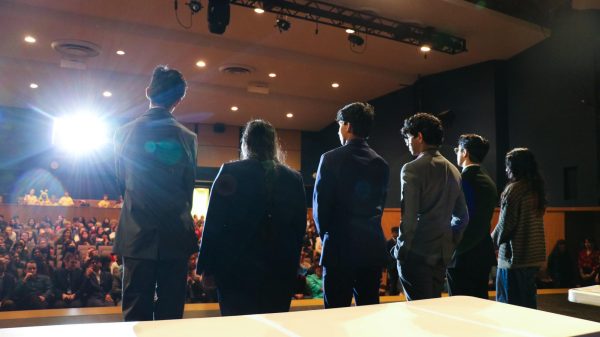Bigger Isn’t Better
When people think of America, they think of freedom. Bald eagles. Red, white and blue. However they also think of fast food, calories and obesity. In recent years, the word “American” has almost become synonymous with the word “big.” The people, serving sizes and nearly everything existing in our country is larger than the non-US counterpart.
According to an article published by the American Diabetes Association (ADA), the amount of Americans with diabetes will increase by 165% within the next 35 years: an increase of 18 million people, or enough to fill the average professional baseball stadium over 400 times. By 2021, the cost of health care spending in the United States is expected to reach over $4.8 trillion, a $2.2 trillion dollar increase since 2010.
These staggering figures, while seemingly overwhelming and difficult to reverse, are just a small facet of the issues facing American health standards. While Clayton may seem far removed in many respects from being average America, we are not exempt from promoting these poor health and eating habits.
One does not need to look further than our own cafeteria in the CHS Commons to see that we, although unintentionally, promote possibly one of the most pressing issues facing American society today. By examining many of of the food selections in the CHS cafeteria and, while assuming our options are similar to those available in schools across the country, these shocking statistics begin to be a bit easier to grasp. It is more understandable why, according to the Center for Disease Control and Prevention, more than one in three Americans are overweight or obese.
During the lunch periods, the checkout counter is encircled by options of sugary drinks, lined with ice cream bars and draped with bags of chips and other à la carte selections. While a scarce number of healthy alternatives are provided by the cafeteria, these are few and rarely selected by students.
What may be even scarier is what our school’s vending machines contain: fruit snacks, sodas and juices, even Pop Tarts. After these are refilled, the snacks and drinks are sometimes emptied within a matter of hours, as the contents of the vending machines are available to students eating lunch in the commons.
The U.S. Department of Agriculture even states that à la carte options do not have to comply with the standards set for foods sold in schools. According to the USDA website, “any entrée item offered as part of the lunch program or the breakfast program is exempt from all competitive food standards.”
When presented with the selection between a “healthier” school-made meal, an a la carte item and snacks on the shelves, students will often opt for the latter two.
Clayton High is a school that prides itself in being leaders in many aspects of education. We certainly have room to improve, however, when it comes to the health of our students. Fortunately, this is not a difficult fix. If we elect to eliminate many of the unhealthy options available within our cafeteria, we can continue to be the model for other school districts across the country.
Our district tagline is “Educate. Inspire. Empower.” While we can educate students on making healthy life decisions through our excellent health program, Clayton does very little to act upon these values in this respect. Indeed, we hypocritically further the problem. All of this, however, can change. To do so, it must start in the school cafeteria.
A $50 or more donation includes a subscription to the Clayton High School Globe 2024-2025 print news magazine.
We will mail a copy of our issues to the recipients of your choice.
Your donation helps preserve the tangible experience of print journalism, ensuring that student voices reach our community and that student democracy thrives.

Lawrence Hu is currently a sophomore at Clayton High School and first year editor for The Globe. He is an avid writer, photographer and distributer. While rival editor Max Steinbaum...

Max is a senior, and has been a member of the Globe since his freshman year. He is very excited to return as a Senior Managing Editor for the 2016-17 school year. Previously,...










